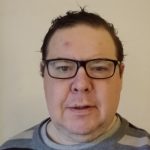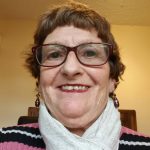From the moment of diagnosis to the provision of support, understanding patient experience is a key step to improving quality of care. An evidence-based approach to patient experience can help ensure health and care services listen to and work with patients to improve the experience of care.
This Collection brings together NIHR research relating to patient experience. The Alerts explore personalised rehabilitation, mental health, decision aids and health inequalities and cover a range of health conditions such as stroke, anorexia, multiple sclerosis and type 2 diabetes. We asked a number of health and social care professionals, patients and carers to comment on selected Alerts that are relevant and important to them. Their commentary provides an interesting insight and highlights what we can learn from the research summarised in the Alerts.
The Alerts included in this collection are:
- Stroke survivors with vision impairments need personalised rehabilitation and greater support
- Lockdown raised anxiety in people with anorexia and their carers, but online resources helped
- A decision aid may help people with newly-diagnosed multiple sclerosis consider their options for treatment
- Sharing electronic records with patients led to improved control of type two diabetes
- Ongoing pain after knee replacement: people need support and encouragement to seek help
- Recommendations from male students help shape mental health support for this high-risk group
- People in the most deprived groups were least likely to take part in the exercise referral scheme, study finds
- New research provides insights into the distress experienced by transgender adults
- Most patients welcome advice from GPs on changing their behaviour to improve health
- Some antidepressants can help people quit smoking, but other medications may offer greater benefits
- Parents-to-be need to be prepared for receiving uncertain results from genetic tests
- Social prescribing could empower patients to address non-medical problems in their lives
Stroke survivors with vision impairments need personalised rehabilitation and greater support
 Read the Alert on stroke survivors with visual impariments
Read the Alert on stroke survivors with visual impariments
Mark Cadman - Stroke survivor and Trainee Counsellor
"I lost sight in both of my eyes shortly after my stroke so I recognise and understand the many challenges (social isolation, loss of employment and inability to drive) that are highlighted in this research as impacts of sight loss. As per the research I had a lot of support from my GP, ophthalmic consultant, clinical psychologist and neuro-clinical psychologists. They worked very hard, but there was no concept of personalised care or personalised rehabilitation. No multidisciplinary team approach or joined up strategy. Personally, I would ask for and insist on a personalised approach if this happened again.
"NICE guidelines for stroke rehabilitation are shortly to be reviewed through the creation of a guidelines committee, so this research would be very beneficial to that team. The evidence is important in its own right, but it is part of a general move towards all care and rehabilitation being user focussed and therefore personalised."
Alison McCracken - Occupational Therapist
"Visual changes after stroke may not be as obvious as physical impairments, but can have a very significant impact. This research, highlighting the challenges and health inequalities experienced by stroke survivors with vision impairments, is really important. As an occupational therapist working in stroke rehabilitation these research findings certainly seem to match what we see in practice – that visual changes after stroke have far-reaching impacts on the functioning and everyday life of people we work with.
"The authors are right to highlight the inequitable provision of visual rehabilitation after stroke and barriers to healthcare access. As healthcare services we certainly need to do better in terms of making reasonable adjustments for people with visual disabilities. Those of us working in stroke rehabilitation try as best we can to provide holistic rehabilitation including visual rehabilitation. But many would agree with the Alert's conclusions that having orthoptists, and their specialist expertise, on all stroke wards would improve care. My team would certainly welcome this change."
Stephen Taylor - lives with type 2 diabetes and had a stroke in 2016
"As a stroke survivor, learning that 60% of people who have had a stroke experience sight problems was a surprise. The range of new challenges and barriers to independence following a stroke are huge and painful to negotiate. The extra psychological and physical difficulty of negotiating adjustment and rehabilitation following sight loss must be incredibly challenging. The initial period of rehab in hospital comes with so much new information learning at an already traumatic time. Extra support seems like it would be incredibly important."
Tootie Bueser - Associate Director for Clinical Research and Cardiac Nurse
"This Alert really struck me as I was not aware that 60% of patients who suffer a stroke also have some loss of sight – that number is staggering. I may not be working in the specialist field of stroke but many patients we encounter, in general as clinicians, may have had one. I will therefore be more sensitive to this aspect and be more patient-centred in my nursing care as the study has shown how much a visual impairment impacts the quality of life and long-term adjustment of stroke patients.
"Rehabilitation is such an important aspect of recovery whatever the acute health condition may have been, and a comprehensive assessment of both physical and psychological needs is paramount as well as having the right expertise to address these needs. In this case, I do hope that the recommendation for having a vision service as part of routine care will be adopted widely by stroke units."
Carole Bailey - Carer and patient & public involvement volunteer
"I am commenting on this because my husband has a visual impairment caused by the neurological condition that is multiple sclerosis (MS). I feel that there is a lot of value in personalised rehabilitation, and a continued provision of information and support, which could help people who have had a stroke and people with neurological conditions that have affected vision, understand the negatives of sight loss, but also the positives of how it can be managed. Advising on aids that are available, or by making referrals to other professionals that can help make their lives easier could improve their independence.
"Information and communication is paramount to an individual's understanding of any medical condition, and continued support should be ongoing with follow up appointments, until they no longer require it, or feel they no longer need it. However, vision changes over time. Will the support be continued, and if so, for how long? Also, circumstances change, there may come a point when a person needs extra help. Will they still be able to access services pertinent to their vision, or will they simply be placed on a lengthy waiting list?"
Lockdown raised anxiety in people with anorexia and their carers, but online resources helped
 Read the Alert on online resources for people with anorexia
Read the Alert on online resources for people with anorexia
Dave Chawner - experience of anorexia
"Being a bloke with anorexia, this really resonates with me. The positive effects were really interesting – you rarely see positive news these days, it always seems to want to focus on the negative. This was incredible to see. I really support the Triangle project and all involved because you don't choose to have an eating disorder, but you do have a responsibility to get better. It's amazing to see researchers assess the need for ownership and culpability in recovery."
Dr Jasjit Kaur Atwal - GP
"I suspect we will be analysing and reflecting on the direct and indirect, individual and societal consequences of Covid-19 for a generation. This paper has given me a more detailed insight into the lives of adults with anorexia nervosa and their carers during lockdown, and increased my concern and awareness for those individuals with eating disorders but lack of familial support. As a carer myself, I was pleased to see carer contributions to the study.
"Those with eating disorders have been uniquely affected by media and government messages relating to food, exercise and hand washing and by social distancing and lockdown restrictions during the pandemic and as such will require tailored support going forward. An emerging theme in this study was increased self-efficacy experienced by some and it will be interesting to see if this can be developed and supported by eating disorder services. This study also heightens the urgent need to capture similar narratives for those adult patients with eating disorders, who did not have access to carer support at all, during this time."
Dr Nicola Byrom - Senior lecturer in Psychology and Founder of Student Minds
"This Alert highlights how challenging lockdown rules have been for some families; it is distressing to read that very ill individuals are feeling guilty about needing practical support from their family. This research is a clear reminder that all lockdown rules must be managed with a strong degree of humanity. This research will help clinicians continue to think creatively about how they can support patients remotely and should act as a reminder for all of the level of disruption that Covid-19 has caused for very ill individuals."
A decision aid may help people with newly-diagnosed multiple sclerosis consider their options for treatment
Read the Alert on the decision aid for multiple sclerosis
Carole Bailey - Carer and patient & public involvement volunteer
"My husband was diagnosed in 1989 with relapsing and remitting multiple sclerosis (MS). He is now in the final stages of the condition with advanced secondary progressive MS, and bed bound. I am his full time carer and have been for the past 32 years. On the day of his diagnosis, he had 12 doctors around his bed, the consultant said "he was sorry - but he had multiple sclerosis", and then all the doctors left. I was at his bedside at the time. He was given no explanation of what the diagnosis meant, what the future held or options of what to do about it. There were no disease modifying therapies (DMTs) available at that time, it was simply a case of ‘get on with it’.
"I feel the decision aid booklet is really useful in that it's highly informative. The glossary of terms at the end of the booklet is clear, concise, and covers virtually everything that an individual being diagnosed with MS would need to know. There is, however, a lot of information to digest. Some of which might well go over some people’s heads, because MS can cause a lot of cognitive problems, whether suffering a relapse or not. Also, there are parts of the booklet to write feelings in. My husband struggled to read during a relapse, let alone write. Plus, factor in double vision, and optical neuropathy, and it's even more difficult. For someone that has a partner, or carer that has the time to go through the booklet with them, I feel it's a really good tool. It’s also worth highlighting that for someone diagnosed in their 20s or 30s, they might prefer access to a mobile phone app that they can read DMTs and text to, rather than written literature.
"Finally, after spending the majority of my life amongst people with MS, I have found that most prefer to say they have a 'condition', not a 'disease'. Terminology can make a huge difference in the way an individual accepts what's happening to them, especially on being newly diagnosed. A 'condition' sounds treatable, a 'disease' sounds like it's the end to some."
Sharing electronic records with patients led to improved control of type two diabetes
 Read the Alert on electronic records
Read the Alert on electronic records
Stephen Taylor - lives with type 2 diabetes and had a stroke in 2016
"I was diagnosed with type 2 diabetes around five years ago and have been lucky to have incredibly supportive health professionals who have involved me fully in managing my own treatment. Having as much information as possible has always been important to me, and I can relate to the fact that it is more widely beneficial. Standardisation of format would be a big positive for clarity in what can be a difficult area for non-medical professionals to navigate.
Sue Dainty - Patient & public involvement volunteer and past stop smoking advisor
"My husband was diagnosed with type 2 diabetes ten years ago which is controlled with medication. His blood sugar levels, however, do fluctuate from time to time. From his experience as a patient, he says that the more information he has about his health condition, the easier it is for him to manage it. He accesses the internet daily and is able to check test results/records on the doctors surgery website. To read data electronically will have a greater impact – seeing figures in black and white will encourage patients to actively reduce their sugar levels. It also promotes self-management and takes pressure off GPs. It is, however, worth noting that not all patients have access to digital data or have the confidence to use it, potentially creating patient inequalities.
Tootie Bueser - Associate Director for Clinical Research and Cardiac Nurse
"I find that electronic patient records help me give better care to my patients as it is easier to see information from different sources in one place and look out for trends for improvement or deterioration. I welcome the subject of this review as it looks at how patients could benefit from the ability to view their own electronic records. Whilst the possible mechanisms by which the improvements in safety outcomes and reduction of blood sugar levels in diabetic patients were not summarised, there is a sense of empowerment for self-management that this knowledge and transparency brings.
"I do think that a lot of consideration must be given to the way clinical records are accessed and presented to patients. I am concerned that the different electronic record platforms NHS trusts are adopting may be a barrier to standardisation. In any case, I hope patients will be part and parcel of the planning of these endeavours. As well as user experience for accessing records, further studies or innovations in this aspect should also make sure there is support available for patients when they have questions or concerns about their records."
Dr Jackie Granleese - Retired chartered health psychologist and active patient & public involvement volunteer
"Information is power. In a doctor–patient relationship, doctors tended to hold power as they held the information regarding the patient's records. With the advent of patients' rights to access their electronic health records (EHRs), it is appropriate, indeed overdue as the authors of this paper argue, to evaluate the sharing of patients' EHRs against their health outcomes. This also changes the power balance in the relationship. This might explain why there are some medical critics of patients' access to their EHRs, albeit couched in terms of concern as to whether some patients (ethnically different, educationally challenged, lower socio-economic status) might not have the ability or means to understand the EHRs information clearly.
"I am a passionate believer in reading everything any doctor writes about me or receives about me as a patient. It is so easy for errors to creep into health records whether electronic or not, subsequently being read by the next doctor as fact. Indeed such errors have happened in my own health records! In my opinion, the authors' research makes a valuable and positive contribution in assessing the impact of patients' EHR access on aspects of their healthcare for type 2 diabetes patients. If the authors' recommendations are adopted, greater understanding of the role of EHRs in patient centred care for other illnesses will follow.
Ongoing pain after knee replacement: people need support and encouragement to seek help
 Read the Alert on pain after knee replacement
Read the Alert on pain after knee replacement
Dr Cathy Price - Consultant in Pain Medicine
"Chronic post-surgical knee pain is either due to central sensitisation, which does not change post operatively, neuropathic pain due to nerve trauma, poor rehabilitation capacity or postoperative complication leading to further pain. Some of these are reversible and some are preventable. It is disappointing therefore to read that patients regard the situation as futile and it highlights the gaps in work up and management that could make a difference if evidence was applied to practice.
"Clinicians involved in the management of knee osteoarthritis would benefit from reading this research and updating their knowledge. Arthritis patient charities would also benefit as well as promoting better knowledge amongst patients. In itself the research will not change practice, however, research targeted at implementing evidence into practice would. It is hoped that these findings would prompt such research.
"There is a risk of 'so what' or 'we tried our best' due to prevailing attitudes to chronic pain. The cost of falls, hospitalisations and the need for greater social care need to be spelled out in order to change those attitudes."
Recommendations from male students help shape mental health support for this high-risk group
 Read the Alert on mental health in male students
Read the Alert on mental health in male students
Dr Nicola Byrom - Senior lecturer in Psychology and Founder of Student Minds
"Looking at male mental health in students, the value of informal support was highlighted. This fits with a widely established trend, of students and young people preferring to seek help for their mental health from peers. Many wonder how formal mental health services can help, and as the research on social prescribing highlights, less formal approaches can be very effective. The Canadian mental health charity, Teenmentalhealth.org, advocates a Mental Health by Stealth approach, and it sounds like this might be particularly effective to support male students. This research is a firm reminder that universities need to think carefully about how their mental health support, formal and informal, is advertised and promoted, keeping in mind the specific needs of male students."
Mark Cadman - Stroke survivor and Trainee Counsellor
"I am a counsellor on clinical placement at a charity supporting young people in the age range of 11 to 23. Young men are very reluctant to come forward for support with any medical concerns, especially if the challenge is mental health related. The statistics of young men in the age range of 18 to 25 being the most at risk of developing disorders such as schizophrenia, anxiety and depression underpins the serious nature and importance of this topic area.
"This research does impact on thinking as more needs to be done to facilitate the inclusion of young men into using talking therapies and psychological support services. Overcoming stereotypes and prejudice which can generate stigma and build access barriers for young men is an important step. The biggest barrier is the view that, for men, seeking mental health support is a sign of weakness. Using role models and ensuring that the relevant teams across primary and secondary care are all working to encourage and facilitate young men to access services will no doubt help."
Dr Jackie Granleese - Retired chartered health psychologist and active patient & public involvement volunteer
"As an academic, and chartered health psychologist, I have had responsibility for student pastoral care for nearly 40 years. I have also acted as Senior Warden resident on campus leading six junior wardens and caring for over 600 students in student accommodation each year. This study replicates to some extent existing research but adds little if any new information that is useful for either researchers or practitioners. There are contextual and methodological concerns which may have biased the results. The research review would have benefited from reading The Education Policy's Institute's 2018 paper on the "Prevalence of mental health issues within the student-aged population" which clearly sets out the wider issues such as students' transition from school to university, financial stresses, and the increased rate of common mental disorders (CMD) for all students, as well as suicide especially for male postgraduates.
"Given the research was conducted in one university, it may have also been useful to identify the university provision, especially as 50% of the focus group students had previously sought help for their mental health concerns. Such consideration could have positively influenced the focus group schedule. Methodologically, no consideration was given to the bias in the ethnicity of the sample. 62% of the sample were from ethnicities that are construed as male-centric. Such considerations lead me to conclude the research lacks robustness."
People in the most deprived groups were least likely to take part in the exercise referral scheme, study finds
 Read the Alert on the exercise referral scheme
Read the Alert on the exercise referral scheme
Dr Jasjit Kaur Atwal - GP
"This study has provided another important example of widening inequality by revealing that those most in need of the beneficial outcomes expected from a referral and sustained participation in such programmes, are least likely to take up the referral.
"The authors note that there is a need for thoughtful approaches to clinical evidence generation to further understand reasons for poor uptake or continued participation. One possible reason is a rise in cost of the scheme that occurred, but other potential underlying issues require deeper exploration. For example, although an objective of local exercise referral schemes has been to improve health inequality, the study lacks data on patient ethnicity which the authors note would provide greater insight going forward. I welcome further analysis to uncover themes and narratives expressed by groups within the e-cohort including according to ethnicity, those with caring responsibilities and those with potentially less time and capacity to commit to exercise schemes due to wage earning necessity."
Dr Jackie Granleese - Retired chartered health psychologist and active patient & public involvement volunteer
"I cannot praise this longitudinal study of referrals to and uptake of exercise highly enough. Analysis of the data from National Exercise Referral Scheme (NERS) of Wales offers a unique opportunity to understand the factors associated with patient uptake that can inform future decision making in order to optimise uptake rates across patient sub-groups. Such understandings are critical as the UK is facing an obesity crisis caused by increasing levels of inactivity, a factor in developing diabetes, cancer, and heart disease.
"I benefited from an exercise scheme run by physiotherapists in a community hospital setting when I injured my leg. I thoroughly enjoyed exercising in an environment where people with similar injuries were completing similar exercise tasks. Not only was I exercising but I felt a sense of camaraderie with the others in the class which was beneficial in my recovery. I was gutted when I completed the course as this was the only exercise I was getting on a weekly basis. I would not have attended a ‘normal’ gym as I would have been put off being older and less fit. I would strongly urge all policy makers, health professionals and the public to push for and urge those in power to set up NERSs across the UK bearing in mind the findings of this study. In the long term it will save money treating patients for illnesses caused by inactivity and provide health benefits for all."
Alison McCracken - Occupational Therapist
"It is great to see the implementation and equity of an exercise referral scheme evaluated. The fact that referral rates and use of the scheme was lower among the demographic groups who may have most to gain is worrying. This shows the importance of evaluating equity of interventions as well as considering lifestyle changes within the broader context of participants' lives."
New research provides insights into the distress experienced by transgender adults
 Read the Alert on distress experienced by transgender adults
Read the Alert on distress experienced by transgender adults
Reubs Walsh - Researcher
"Trans people experience gender-related distress not because that distress is inherent to being trans (it isn’t), but because of the way our current society, saturated as it is with cisgenderism, misperceives, ‘gaslights’ and discriminates against them.
"Due to historic and indeed continuing clinical approaches to transitional healthcare that subjected patients to unnecessary psychoanalytic interrogations and talking therapies before medical intervention would be provided, many trans people are understandably wary of psychological treatments focussed on dysphoria and other gender-related distress. However, this review shows a significant need for trans-affirming psychological support, arising from the social context. Therefore, in addition to doing what we can to dismantle structural and cultural transphobia and cisgenderism, future research should examine how talking therapies, "social cures" and perhaps even social prescribing could be applied in new ways to meet this need, drawing on the first-person accounts and community knowledges of trans people.
"Perhaps the first step is supporting the trans community and those around them in coming to recognise that trans people are not the problem."
Mark Cadman - Stroke survivor and Trainee Counsellor
"This Alert made me think about the distress and pain felt by transgender adults and how we can best structure and provide the right level of support that is required. As this research is the first systematic review, more is needed. The findings will hopefully drive change to identify, fund and provide the personalised support that is needed. The four key causes of distress are all important, but I would highlight social consequences, such as being isolated. Barriers to research implementation include ignorance and social stigma, so building on this research to raise awareness and build partnerships and understanding would be my hope."
Most patients welcome advice from GPs on changing their behaviour to improve health
 Read the Alert on advice from GPs to improve health
Read the Alert on advice from GPs to improve health
Carole Bailey - Carer and patient & public involvement volunteer
"I am 60 years young, and now value my healthcare more than ever. Over the years, my husband and I have made several bad health choices including smoking and drinking too much alcohol, which, although did not affect our health at the time, in later years, has had a major impact.
"A lot of healthcare centres have several GP's, and countless locums doing a 6–12 month placement. This doesn’t always allow for a relationship to form, because most people can't see the same GP every time they feel they need to. Patients need to trust their GP to act on their advice. This can only happen if the patient/GP relationship is respected, listened to, and most importantly, consistent. Individuals also need to want to change. And, unfortunately, some people just don't want to. It’s worth noting that this research was carried out mainly on older people, and as I'm 60 myself, I feel older people will take the advice of a doctor more seriously compared to young people."
Tootie Bueser - Associate Director for Clinical Research and Cardiac Nurse
"It is phenomenal how many personalities in social media are giving behaviour change advice nowadays and this study is reassuring in that GPs continue to be trusted in this field. It is also an important finding that patients want to get more out of their GP consultations by using this to get behaviour change advice. The challenge here is the tailoring of this advice as a good relationship needs to exist between the patient and the GP to foster this familiarity with the patient’s health and social context. The wider project within which this study is part of will hopefully identify these challenges and barriers to GPs providing behaviour change advice to enable solutions and perhaps also identify other members of the team within GP practices such as nurses who can provide these interventions."
Dr Jackie Granleese - Retired chartered health psychologist and active patient & public involvement volunteer
"While it would be lovely to think that advice from a doctor to change one's behaviour in order to improve one's health would be acted upon by patients, the medical context of such an intervention needs to be considered. This can include the nature of the doctor-patient relationship, the doctor's communication skills, the time available to discuss the change and the availability of resources required to make the change. It is also important to consider the patient's characteristics (e.g. demographics, social context and psychological). This study does not address such considerations. As a result, I do not think the evidence from this study is likely to change practice in doctors' surgeries. Even if patients accept the doctor's advice, will they act upon it without resources and support being made available to them? Until GP surgeries have access to resources and trained professionals skilled in behavioural change readily available, patient behavioural change will be difficult to attain."
Sue Dainty - Patient & public involvement volunteer and past stop smoking advisor
"I am passionate about patients working alongside healthcare professionals. As a patient who has a good relationship with my GP, I concur with the findings as I welcome any advice that impacts positively on my health and improves my fitness levels. My reasons are: it increases my confidence, gives me more control and promotes self-management on a daily basis of my long term health condition (diagnosed at eight with rheumatoid arthritis). GPs and patients will both benefit from this research by strengthening their relationship with each other - patients working alongside GPs will lead to more patient centred care as well as patient involvement/co-production.
"I feel that emphasising the benefits of healthy eating and increased physical activity levels to the patient, in relation to prevention and recovery regarding their health condition(s), is extremely important. The manner in which the behaviour change advice is communicated by the GP to the patient will greatly impact on the way it is received/perceived (i.e. empathy and tone of voice)."
Some antidepressants can help people quit smoking, but other medications may offer greater benefits
 Read the Alert on antidepressants to help quit smoking
Read the Alert on antidepressants to help quit smoking
Nicky Coote - Service Lead & Specialist Smoking Cessation Practitioner
"This Alert is a timely reminder to all those seeking to stop smoking and those supporting them, that there is another medication that can help some people. Zyban (buproprion) has long been known to the stop smoking community but is poorly prescribed. It is good to be able to approach my team with new information that in the correct cohort of patients this is efficacious, safe and offers a good chance of prolonged cessation.
"Stopping smoking is such a key moment for many people, we need all our practitioners to be well versed and confident in prescribing or recommending all suitable products. This Alert will help to increase the confidence in the services and ultimately improve both experiences and outcomes."
Sue Dainty - Patient & public involvement volunteer and past stop smoking advisor
"This research reinforces my professional experience in supporting people to stop smoking. In my twelve years of working as a Stop Smoking Advisor, bupropion was not prescribed once. Varenicline was the regular stop smoking medication being highly successful in helping patients to cease smoking for years as opposed to months (the study stated six months or longer with bupropion). Many people desired a medication that stopped cigarette cravings completely so the use of varenicline was preferred to nicotine patches, gum etc. However, the medication was only recommended after unsuccessful quit attempts with nicotine replacement therapy (NRT) products.
"It is clear from the results that bupropion is an effective way to treat people with a desire to stop smoking. The review did, however, find that "bupropion may be as effective as NRT, but less effective than Varenicline" when used as a stop smoking aid. I feel people should be given the best chance/support in their quit attempts. Smokers who are unsuccessful at quitting with NRT/Varenicline or who cannot tolerate them could benefit from being offered bupropion as an alternative option."
Carole Bailey - Carer and patient & public involvement volunteer
"My first thoughts on reading about this research is that by giving drugs to smokers to help them quit, is just exchanging one habit for another. Stopping smoking is extremely difficult. I used to smoke 40 cigarettes a day. I tried endless times to give up, but failed on most attempts due to a lack of willpower. I was also scuppered somewhat when the nicotine patches came out, because I had a severe skin allergic reaction to them.
"People smoke for different reasons. Some do it to relax, de-stress, and peer pressure etc. Everyone's different. Having not smoked for around 15 years, I realise now that I just did it to be sociable and relax. What made me give up? It wasn't nicotine patches, antidepressants, or any other form of drug. It was the one thing that gave me incentive. My husband got oral cancer. He's had to have part of his jaw, and tongue removed. Having gone through this with him was a real wake up call.
"From my experience, you have to really want to give up smoking, and stay away from the triggers that make you do it. Limit the time you spend with friends that smoke, don't go into areas where others are smoking. Changing your own mindset, has to be better than using drugs, because drugs are just papering over the problem, not solving it."
Parents-to-be need to be prepared for receiving uncertain results from genetic tests
 Read the Alert on parents-to-be receiving uncertain test results
Read the Alert on parents-to-be receiving uncertain test results
Tootie Bueser - Associate Director for Clinical Research and Cardiac Nurse
"This review has highlighted how much uncertainty can be a cause of anxiety in genomic healthcare. As a nurse in the field of genomics, I feel that part of informed consent for a test involves an in-depth conversation about possible results, including uncertain or inconclusive results, but it is often difficult to emphasise this when there is so much hope placed on the test to arrive at a diagnosis. Although the findings here emphasised how important comprehensive genomic counselling is prior to testing as well as getting a sense of parents’ preferences for communicating results, it showed that patients need support throughout the whole process. Particularly around the post-test period as they make decisions about the pregnancy and their health. Additional sources of support should also be tapped into such as the extended family, peer support groups and other specialists.
"As genomic tests become widely available in more settings, it is imperative that health professionals get the adequate training to ensure that this process is as supportive as it can be for patients. Competencies and education packages are currently being developed by Genomics Education England to support all health professionals."
Social prescribing could empower patients to address non-medical problems in their lives
 Read the Alert on social prescribing
Read the Alert on social prescribing
David Humphreys - Family Psychotherapist involved in the development of social prescribing services
"The Alert refers to research concerning adult 18+ social prescribing services. Our experience with a young persons 11–25 year old service is how link workers balance the need to build a connection with the patient, whilst avoiding becoming drawn into a quasi-therapist role. This is especially important where there are safeguarding concerns, which combined with increased demands the pandemic has placed on Child and Adolescent Mental Health Services, Community mental health teams’ and voluntary organisations’ service provision, risks link workers feeling overwhelmed.
"The research suggests link working is a complex intervention requiring a clear model to achieve the desired outcomes. This is consistent with our experience, which highlights the need for a clear framework in which need and risk can be assessed. We are currently looking to develop a family systems based assessment approach drawing on a variety of sources, including models of collaborative integrated primary care used in the USA & Canada. These often employ non-clinical care managers, in similar roles to social prescribers in England. We will use the work highlighted in this Alert to inform our development."
Mark Cadman - Stroke survivor and Trainee Counsellor
"As a Trustee of a stroke charity I work in a community setting and appreciate the growing positive impact of social prescribing. It is a new initiative so does need time and space to grow, especially as it works very much on relationship building with a patient and understanding their needs and matching them to a local resource or charity. This works very well when time is given to understand the needs and capability of local charities.
"In terms of doing something different I would do more to build bridges between GPs, social prescribers and local charities, as this joined up approach will reduce GP workloads but importantly provide the non-medical support that a lot of people actually need. The only way NHS primary care can provide the support needed against the massive increase in demand is to do things differently, social prescribing is one of those important different approaches so the evidence needs wider publicity and is important."
Dr Jasjit Kaur Atwal - GP
"This Alert, I hope, will be hugely impactful in encouraging GPs to explore social prescribing and working in collaboration with link workers and communities. As a GP, I am interested in the life course of my patients. I am interested in working with communities to improve attainment not just in terms of physical health but psychological, financial, educational and even spiritual health, as deficits in each of these areas can contribute to a detriment in fulfilment and wellbeing.
"Communities are resourceful despite adversity and can organise organically in response to local needs. This process can be arduous and needs financial support and sustenance. Link workers are ideally placed to research local community resources and by working in close collaboration with GPs, it is possible that the right service can meet the particular needs of an individual, where otherwise not catered for.
"Social prescribing is possibly a means towards eradicating inequality where under-served groups may be connected with tailored services, and by advocating for much needed services that do not exist or are under-funded. I imagine social prescribing, as it evolves, to answer the needs of GPs and communities."
Stephen Taylor - lives with type 2 diabetes and had a stroke in 2016
"A joined-up, holistic approach to health and well-being seems like an excellent idea, but if link workers are another under-trained and underpaid alternative to social workers and social carers, the benefit of being attached to a GP’s surgery is unclear. This seems like another taxation on the very limited time and resources available to surgeries, and although important, the report makes it clear that GP’s workload was not magically eased, and tracking the impact of the study is complicated and difficult, although softer outcomes look positive."
Dr Nicola Byrom - Senior lecturer in Psychology and Founder of Student Minds
"The realist review on link workers and social prescribing highlights the profound benefits of social prescribing, including building confidence, motivation and skills to manage well-being. However, the review also illustrates the importance of the role of link workers in social prescribing. These individuals inhabit a challenging role, needing to be well connected with the local community and aware of community initiatives. They need to be well connected with and supported by GPs and health services, and yet their independence seems vital to ensure they retain the ‘social’ aspect of their role and have the flexibility to work creatively to support patients. This research identifies that there is an opportunity now to ensure that link workers are truly valued for the role they play and the skills they bring to health care."
Learn more about our contributors
Mark, a stroke survivor and Trustee of Harlow Stroke Support, is a campaigner and passionate advocate for stroke rehabilitation and mental health awareness. He is also a trainee counsellor / psychotherapist on clinical placement working with young people in the age range 11 to 23.
Alison McCracken is an Occupational Therapist with experience in both mental and physical health settings. She is a Clinical Research Therapist working in stroke rehabilitation at University Hospitals of Morecambe Bay NHS Foundation Trust and a Research Scholar with the North West Coast CRN. Special interests include disability, public health and rehabilitation.
Stephen lives with type 2 diabetes and had a stroke in 2016 that left him disabled. He has worked as a social carer, a writer and a project worker for people with aphasia. He loves to read, write and is fascinated by new technology.
Tootie Bueser is the Associate Director for Clinical Research at St Bartholomew's Hospital and is an experienced inherited cardiac conditions nurse. Her NIHR Clinical Doctoral Fellowship project is focused on the care of this patient group. Tootie is also the Immediate Past-President of the British Association for Nursing in Cardiovascular Care and she is a Trustee of the patient charity, Cardiomyopathy UK.
Carole is a full-time carer for her husband who has multiple sclerosis. She has a varied background, but her passion has always been health related. As a result, Carole dedicates any spare time she has to completing academic, clinical and grant reviews for several charities, universities, and the NIHR.
Dave is a number-one best-selling author, award-winning comic and presenter who uses his experience of anorexia to help other people. He's presented on The BBC & written for The Guardian, Metro, Cosmopolitan, GQ and numerous other national publications.
Jassi is a salaried GP at Hucknall Road Medical Centre, Nottingham. She is also a mother of three including a child with a disability. She is hoping to develop research interests in adverse childhood experiences.
Nicola is a senior lecturer in Psychology at the Institute of Psychiatry, Psychology and Neurosciences. She is currently director of SMaRteN, the UKRI funded Student Mental Health Research Network. As a student she founded Student Minds, the student mental health charity, following her own experiences with Anorexia Nervosa, depression and anxiety. Nicola has always been passionate about ensuring that the voice of lived experience is listened to and considered carefully in policy, service and research development.
Sue has worked as a Health Trainer (supporting people in making healthy lifestyle choices) and then a Stop Smoking Advisor based in a Pharmacy. She is currently a member of a Patient & Public Involvement group at a University and is involved with the local NHS Foundation Trust. Sue was diagnosed with Rheumatoid Arthritis at eight years old and uses her experiences to improve health & social care services.
Jackie has worked in academia since 1985 until her retirement in 2015. Her doctorate is in ‘Clinically Presenting with Menorrhagia’ (1988) and from its inception she was a BPS registered chartered health psychologist until she retired. From the 1990s, Jackie’s research focus moved to business related issues in line with her academic appointments to business schools. However, she has always maintained her interests in health-related issues especially as they relate to gynaecological and urological issues. Jackie is currently an active PIER/ PPI (Personal and Public Involvement) member of Northern Ireland's Public Health Agency’s (PHA) Health and Social Care Research & Development division.
Cathy is a Consultant in Pain Medicine and Clinical Director of Services in the Solent NHS Trust, based in Southampton. Her research interests are interventional pain techniques, analysis of datasets that include the chronic pain population and returning the unemployed with chronic pain to work.
Reubs J Walsh is based in the Department of Clinical, Neuro- and Developmental Psychology at the Vrije Universiteit, Amsterdam. Their research focuses on the impact of the social environment (particularly social norms and minority stress) on brain health in development and ageing. Reubs is also a Trustee of the Gender Identity Research and Education Society (GIRES).
Nicky has been working in and around smoking cessation since 2008, in primary and secondary care and in local government. She says “It is a privilege to help people find their way on their smokefree journey and providing quality and effective stop smoking support is something that I am passionate about”. Nicky has a keen interest in all aspects of health, but respiratory is her focus.
David Humphreys is a Family Psychotherapist, based in a GP practice in East Hertfordshire, with experience of working in primary care and adult mental health services. David is involved in the development of the young peoples and adult social prescribing services in the Stort Valley & Villages Primary Care Network (PCN) and provides supervision to the link workers in those services. In 2016 David was awarded a Winston Churchill Fellowship and travelled to the USA & Canada looking at family involvement in collaborative primary mental health care.

 Mark Cadman
Mark Cadman Alison McCracken
Alison McCracken Stephen Taylor
Stephen Taylor Tootie Bueser
Tootie Bueser Carole Bailey
Carole Bailey Dave Chawner
Dave Chawner Dr Jasjit Kaur Atwal
Dr Jasjit Kaur Atwal Dr Nicola Byrom
Dr Nicola Byrom Sue Dainty
Sue Dainty Dr Jackie Granleese
Dr Jackie Granleese Dr Cathy Price
Dr Cathy Price Reubs J Walsh
Reubs J Walsh Nicky Coote
Nicky Coote David Humphrey
David Humphrey